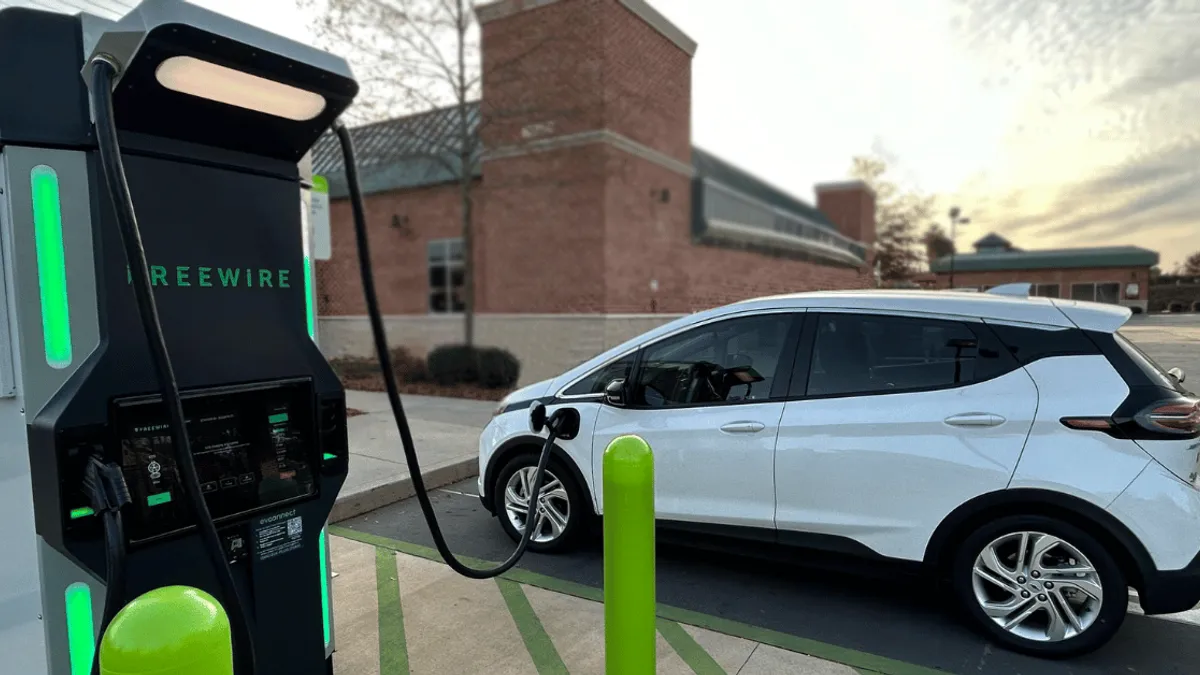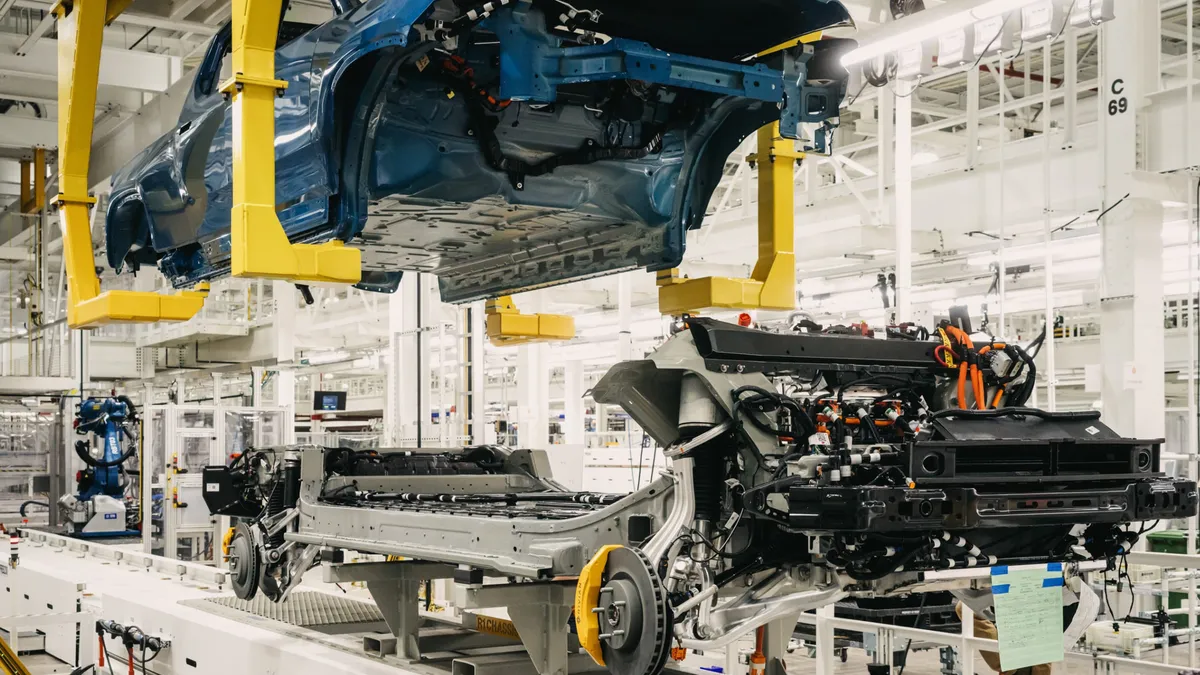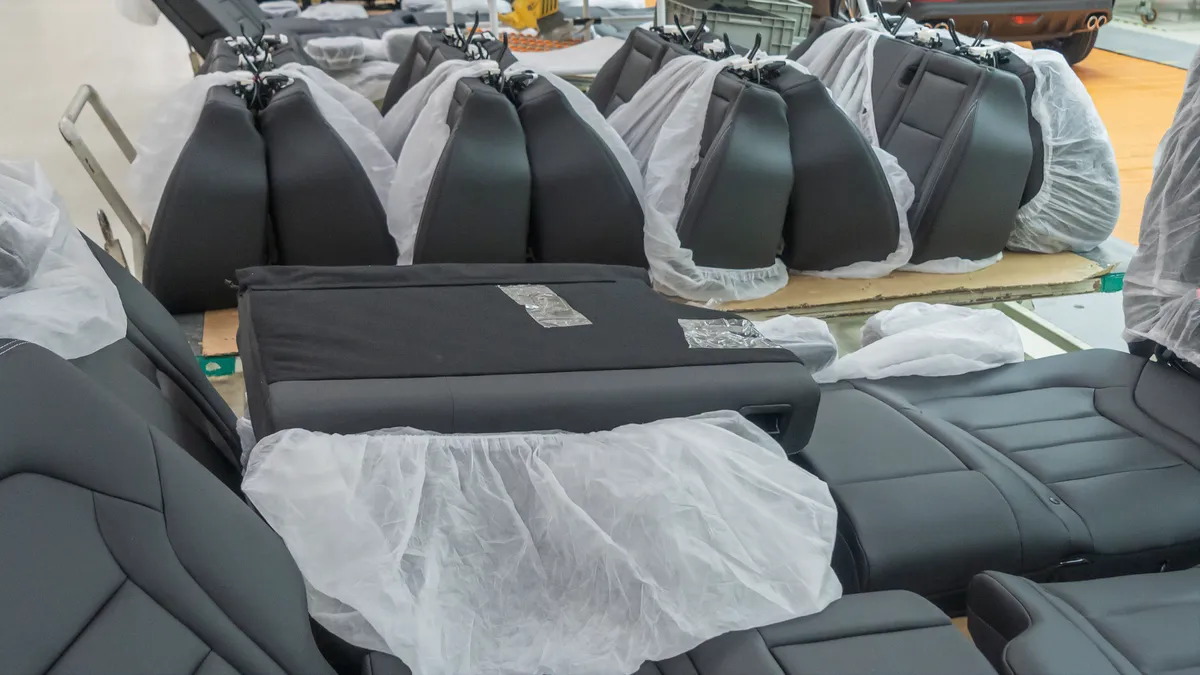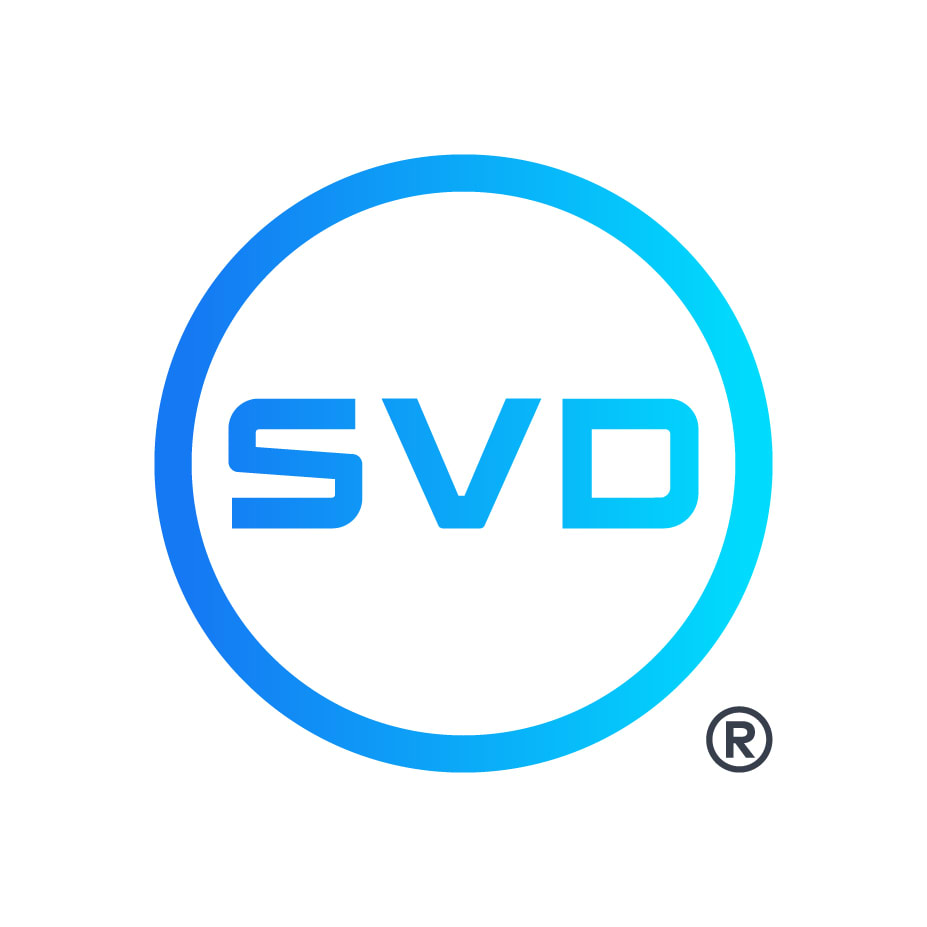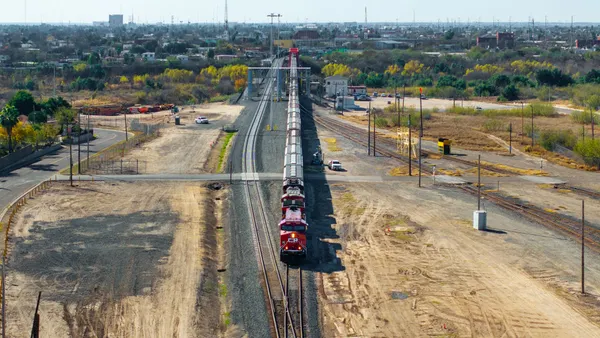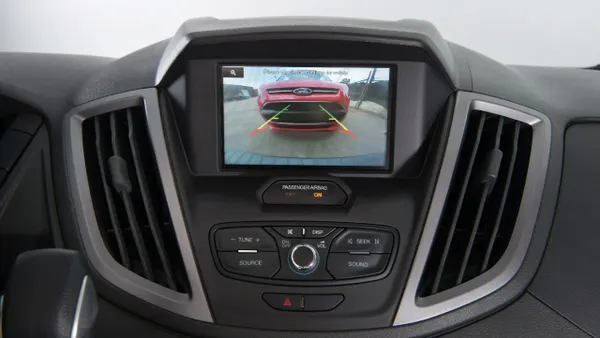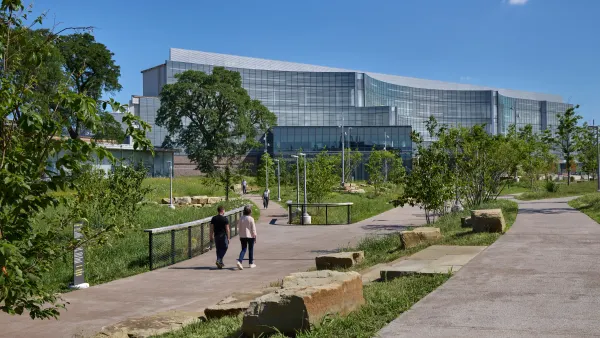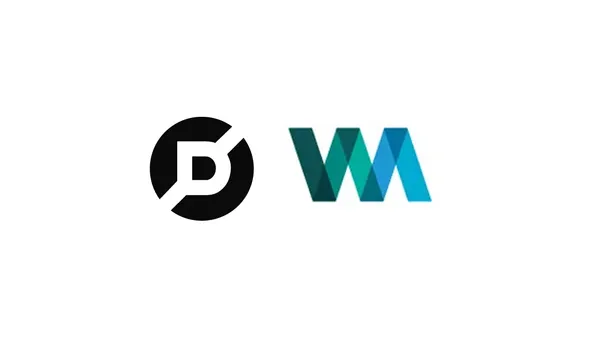Dive Brief:
- A new partnership between vehicle charging provider FreeWire Technologies and GM Envolve, the automaker’s fleet, delivery and energy operation, aims to streamline the fleet vehicle electrification process by offering FreeWire direct-current fast charging infrastructure to GM Evolve’s fleet and commercial customers beginning this year.
- Because FreeWire’s DCFC products don’t require electrical infrastructure upgrades, installation and operating costs can be up to 20% and 70% lower, respectively, than they are for other fast chargers, according to its website. Built-in batteries also enable load-shifting and scheduled power draws from the grid during off-peak periods, when electricity is cheaper, the company says.
- “By offering a solution for both transportation and charging needs, GM Energy and FreeWire are helping to accelerate access to more convenient charging for fleet electrification, while also lowering the barriers to greater EV adoption overall,” FreeWire said in a Jan 24 press release.
Dive Insight:
Though more than 50% of companies across the fleet value chain expect to fully decarbonize their fleets by 2027, most cite costly infrastructure upgrades as a significant obstacle to battery electric vehicle adoption, according to a 2022 McKinsey & Co. survey of fleet operators in the U.S., U.K. and Germany. To ease the transition, more than 60% of surveyed fleet operators plan to partner with fleet management service providers like GM Envolve and nearly 50% with EV charging infrastructure providers like FreeWire, McKinsey’s survey found.
GM Envolve, which sells gas-powered and electric fleet vehicles, will facilitate the deployment of Freewire’s fast-charging solutions for its current and future fleet customers, the release said. The solution is suited to customers who require an “ultrafast charging solution but have limited on-site power,” lease the property where they plan to install charging, or face lengthy and costly construction timelines for grid capacity, according to the release.
FreeWire’s Boost chargers work with electric passenger vehicles, medium-duty vehicles, and heavy-duty trucks, Senior Communications Manager Sara Dodril said in an email. The city of Santa Cruz, California, uses FreeWire’s heavy-duty chargers to power its first electric garbage truck, for example, as part of its effort to establish a fully electrified municipal vehicle fleet by 2035.
Boost DCFC chargers can run off of standard single-phase 240-volt or three-phase 208-volt or 400-volt electrical connections, FreeWire says. They can charge two vehicles at a combined speed of 120 kilowatts, or 60kW per vehicle, it says. In contrast, other fast-charging technologies typically run off of heavier 480- to 1,000-volt connections.
Each Boost charger powers up vehicles directly from its built-in battery, rather than from the local electrical grid. Fleet operators can bypass the battery and charge directly from the grid at up to 27 kW when necessary, Dodril said, noting that the company rarely sees the need for direct grid charging.
FreeWire’s DCFC chargers combine charging equipment, infrastructure and energy storage in a single cabinet and don’t require separate switchgears, transformers or inverters. Thus, fleet charging sites might be able to avoid electrical equipment shortages that have recently hindered some electrification efforts. “The bottleneck issues haven't impacted us at all,” Dodril said.


